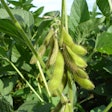
Brazil's expanding biodiesel sector continues to redirect soybean oil away from export markets, contributing to elevated global vegetable oil prices, according to the U.S. Department of Agriculture's April 2025 "Oilseeds: World Markets and Trade" report.
Brazil's industrial transformation
Despite achieving record soybean oil production of nearly 12 million metric tons for 2024/25, Brazil's exports remain constrained at 1.3 million tons as domestic biodiesel production consumes growing volumes of the commodity. The report highlights that Brazil's industrial soybean oil consumption has more than doubled over the past decade, driving a 52% increase in soybean oil production.
"Rising domestic demand exceeded production growth, leading to a slide in exports of soybean oil," the report states.
The Brazil National Energy Council decided in February 2025 to temporarily maintain the biodiesel blend rate at 14% instead of increasing it to 15% as previously scheduled, citing concerns about diesel prices and inflation. Even with this pause, the report suggests that "further growth in Brazil's biodiesel production is likely to keep soybean oil exports near last year's level despite higher crush."
China accelerates rapeseed imports ahead of tariffs
China's rapeseed imports for 2024/25 have been revised upward by 1 million tons to 4 million tons, reflecting an accelerated pace of trade in recent months. This surge occurs as Canadian canola prices declined due to an ongoing trade dispute with China.
On March 20, 2025, China imposed a 100% tariff on Canadian rapeseed products, leading USDA to slash its forecast for China's rapeseed meal imports by 800,000 tons to 2.2 million tons. China's rapeseed oil imports remain unchanged at nearly 1.8 million tons, as the country primarily sources from Russia, United Arab Emirates, Belarus, and Ukraine.
Global market outlook
The global oilseed production forecast has been lowered due to downward revisions to China's cottonseed-to-lint ratio and reduced EU rapeseed and sunflowerseed production. However, overall oilseed trade is higher, driven by significant Canadian rapeseed exports.
Global crush is increasing, with Brazil soybean and China rapeseed utilization being most prominent. The report also indicates higher global oilseed carryout, largely due to an upward revision to Brazil's 2023/2024 soybean production.
In the vegetable oil market, global production is lower primarily due to reduced palm oil output in Southeast Asia. The report notes that "shrinking exportable supplies of Brazilian soybean oil and palm oil in Indonesia, Malaysia, and Thailand have kept global vegetable oil export prices elevated in early 2025."
The U.S. season-average farm price for soybeans remains unchanged at $9.95 per bushel.


















